Commissioners Deborah and Wayne Bungay have been Salvation Army officers for 37 years, spending more than 12 years in international service. Today, they serve as territorial president of women’s ministries and territorial commander in the Zimbabwe and Botswana Territory. Features editor Giselle Randall spoke with Commissioner Deborah Bungay about adapting to new cultures, the impact of the COVID-19 pandemic and their vision for the territory.
Tell us about your journey to international service with The Salvation Army.
It’s difficult to articulate what drew us to international service. We experienced two calls to service: first, to serve as officers within The Salvation Army and, second, to serve internationally. Our calling to international service can only be described as an overwhelming inner sense that we needed to offer ourselves to serve others outside of our borders. We had no preference as to where this could be; we just allowed God, through our territorial and international leaders, to appoint us where he needed us.
What were some of the biggest adjustments you had to make when you started living overseas?
The current pandemic has been a painful experience for many as it has kept them away from family members for prolonged periods of time. For those who live overseas, this is a normal occurrence, and for us it has been the biggest adjustment. Leaving children and grandchildren behind, and only getting to see them once a year or every couple of years, depending on where you are appointed, is difficult. It’s especially challenging when you want to be near family during times of illness or bereavement—it’s during these times that the kilometres that separate become painfully obvious. Not having the comforts of home can also be a huge shock at first, but we have learned to live within our means, and you soon grow accustomed to it.
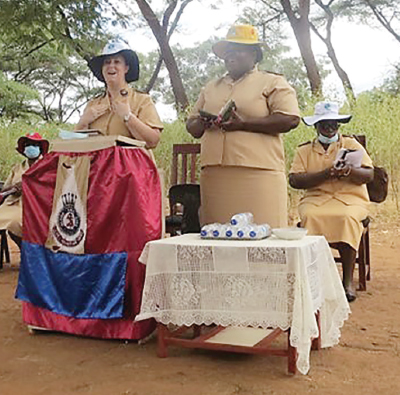
league meeting in a remote rural village
What is your approach to cross-cultural ministry?
Every appointment is different because each culture is different, with their own traditions, foods, languages and social norms. Our diet has consisted of some of the “normal” foods that we eat at home, but often we eat what our people eat: goat, crickets and “meat” that you dare not ask about.
The language barrier can be a challenge, but we have discovered most appointments use English as the business language and, when ministering outside the office, we often are provided with translators. While we have not become fluent in any of the languages, we have learned enough to get along in a pinch, and when it comes to cultural traditions and celebrations, we immerse ourselves as much as possible.
Obviously, there are cultural norms that don’t fit with our Canadian way of thinking, but it would be unwise and unfair to the people we serve to approach ministry in such a way. This is especially true when serving in a non-western country. People are eager to learn western ways related to leadership and service in The Salvation Army, but we’ve discovered that there is a time and place to integrate our western expertise and knowledge with a view to enhance the lives and ministry of the people we serve. One must be careful, however, not to force western standards, or bring a “West is best” mentality, because this will put your ministry at a deficit right from the beginning. One must be respectful of the people’s frame of reference and how their culture intersects with the way they do ministry. We discovered that the quicker we assimilated to the culture, the fewer challenges we had.
There are, however, some amusing things that have happened to us while living in different cultures—things like using hand gestures that were quite innocent to us but have a completely different and not-so-innocent meaning to others. We have chased lizards out of our bedroom on numerous occasions, until finally we realized that they were only there to eat the insects and spiders, so we learned to just leave them there.
On another occasion, one of our employees came to our office just before Christmas with a gift. When we opened the package, we discovered a plate full of fried crickets! We both indulged, to the delight of the employee. Interestingly, they tasted like potato chips. It has also been amusing to receive live chickens, eggs or a sheep as a thank-you gift for visiting a corps or division.
What is your vision for the Zimbabwe and Botswana Territory?
Our personal vision is to see every Salvationist engaged in and committed to the salvation war through the gospel. We took up our current appointments in September 2020, and our usual ministry practice is to spend the first six to nine months listening at all levels. We met with a gathering of executive leaders to hear about the strengths and challenges of the territory, and the wealth of talent, competence, experience, wisdom and passion to support the mission of The Salvation Army in this territory is encouraging.
We are realizing that a large portion of this capacity is captured in the passion and drive of our youth, who are willing to engage in mission in their world. They are responsible for our hope in the future, and this means we can be encouraged about a strong Salvation Army with a powerful gospel message.
God has been leading us toward serious discussions concerning our territorial strategic plan. While the territorial strategy has been in existence for some time, the current Cabinet, along with the strategic planning committee, is dedicated to the implementation of goals, objectives and strategies. While it is an ambitious undertaking, leaders at all levels of the territory are committed to identifying and seizing the “low-hanging fruit,” as well as determining how we can “build a ladder” to grasp the harvest that might currently appear out of reach.
How has the COVID-19 pandemic affected the countries in which you have recently served?
The pandemic has had a tremendously negative impact. During our time in Tanzania, the pandemic had just started to ramp up. People were confused as to what this pandemic was all about. Many trusted traditional healing medicines and others thought that if they didn’t live in urban areas, they were OK. There was a lot of teaching to be done, so we embarked on awareness campaigns and were able to distribute handwashing stations around the city where we lived.
Once we moved to Zimbabwe, we discovered the same to be true. In addition to providing information, we were able to furnish all our Salvation Army schools, hospitals, social units, corps and other ministry units with handwashing stations and sanitizer. COVID-19 also severely impacted the economic situation and left officers without the ability to get salaries and provide food for their families. Thanks to local and international donors, we were able to distribute food to many areas where the need is greatest.
We grieve the loss of many Salvationists due to COVID-19, especially our beloved chief secretary, Lt-Colonel Trustmore Muzorori. His untimely death is still a shock to us as we have lost a colleague, friend and stellar spiritual leader.
The Salvation Army continues to serve our suffering brothers and sisters where we can, while remaining diligent to be safe and not spread the virus further. Our prayers continue for the first responders who place their loved ones at additional risk by simply trying to relieve the suffering. We long and pray for a day when complete relief will come and life will return to normal.
How has international service changed you as a person?
The calling to international service has been very fulfilling. Our worldview has evolved and grown in many ways. Having the ability to make an impact on others in ways that we may not have if we had stayed at home has been a blessing. While we have been able to share our experience and knowledge with others, we have been even more blessed to have learned from the people we serve. We have enjoyed rich cultural experiences, and the blessing of befriending those we have ministered to and with has been a gift from God.
It has changed us as a family as well. In our first overseas appointment, our children were three, six and seven. They immersed themselves in the culture to the point where they called it home. Their worldview was expanded and influenced in such a way that even to this day, they have an affinity for anyone who needs support, they gravitate toward those whom society ignores and they seem to always be looking out for the underdog. Now, as adults, they each understand why their mom and dad are doing what they are doing. It’s not easy for them to be so far away from us, but they get it. We are very proud of them and grateful for the way that serving in a different culture has positively impacted all of us.
This story is from:




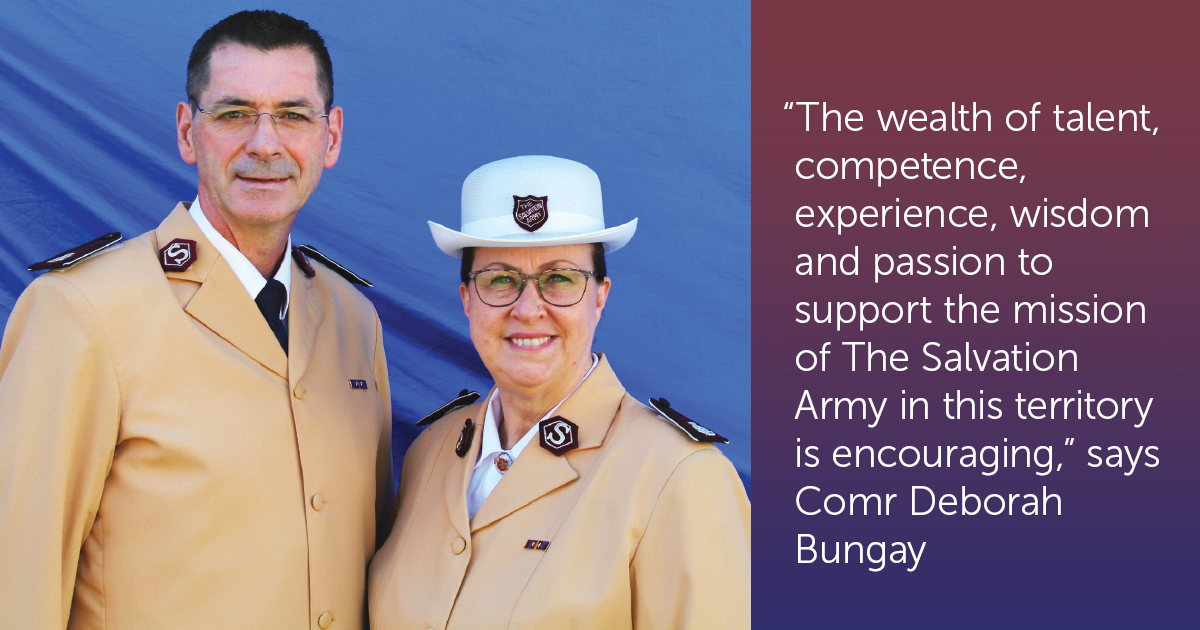
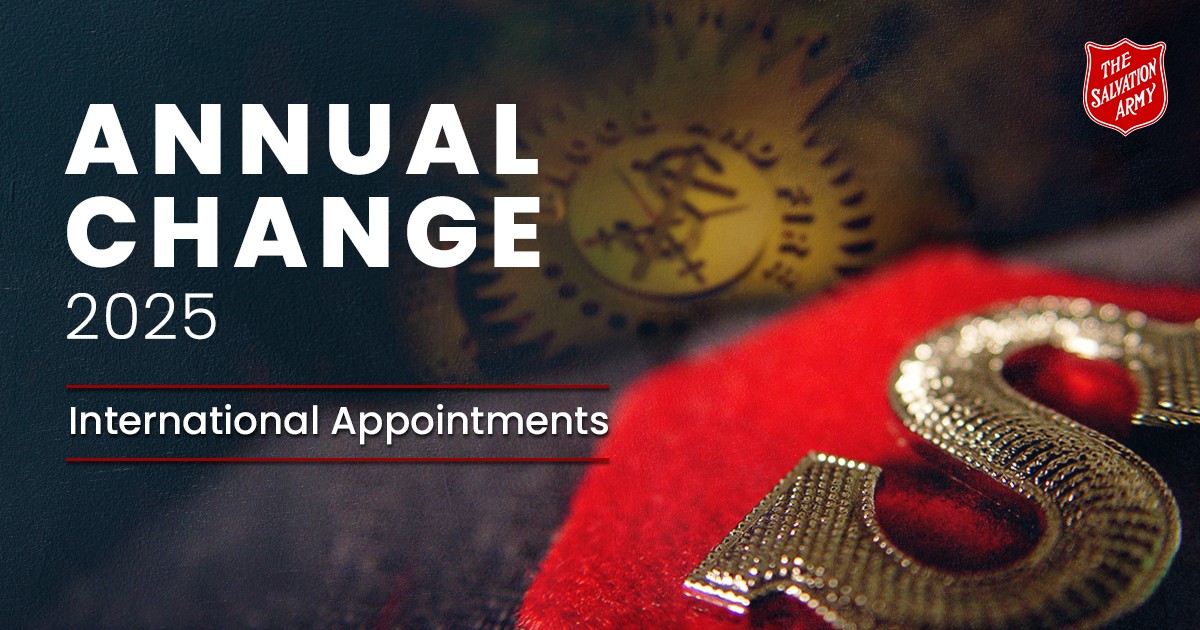
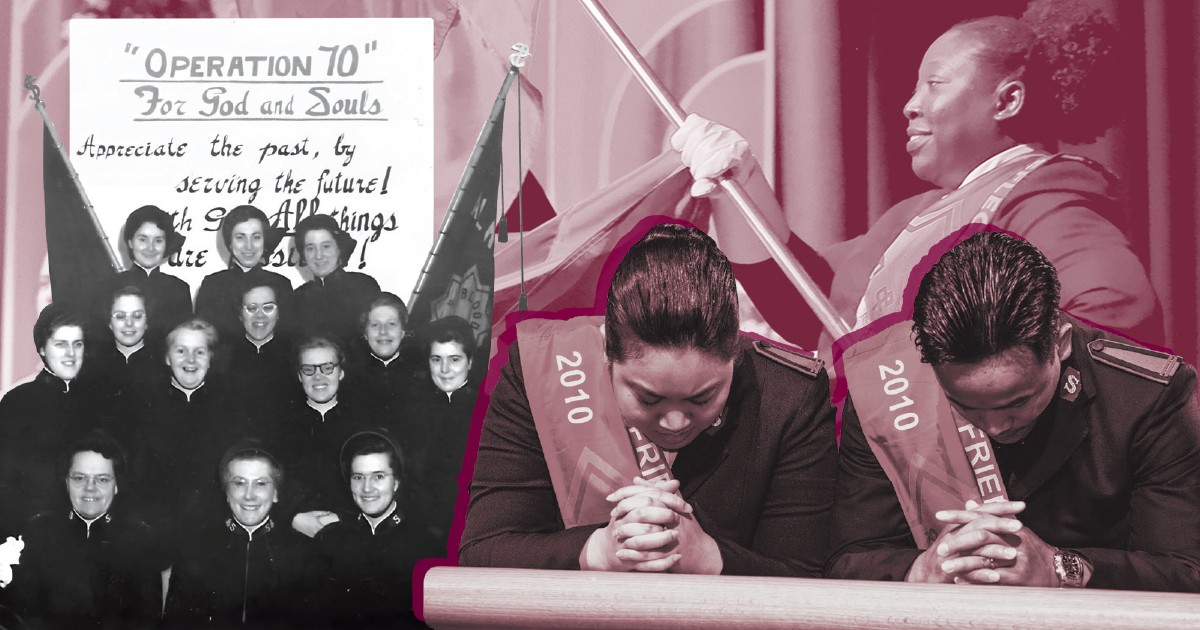
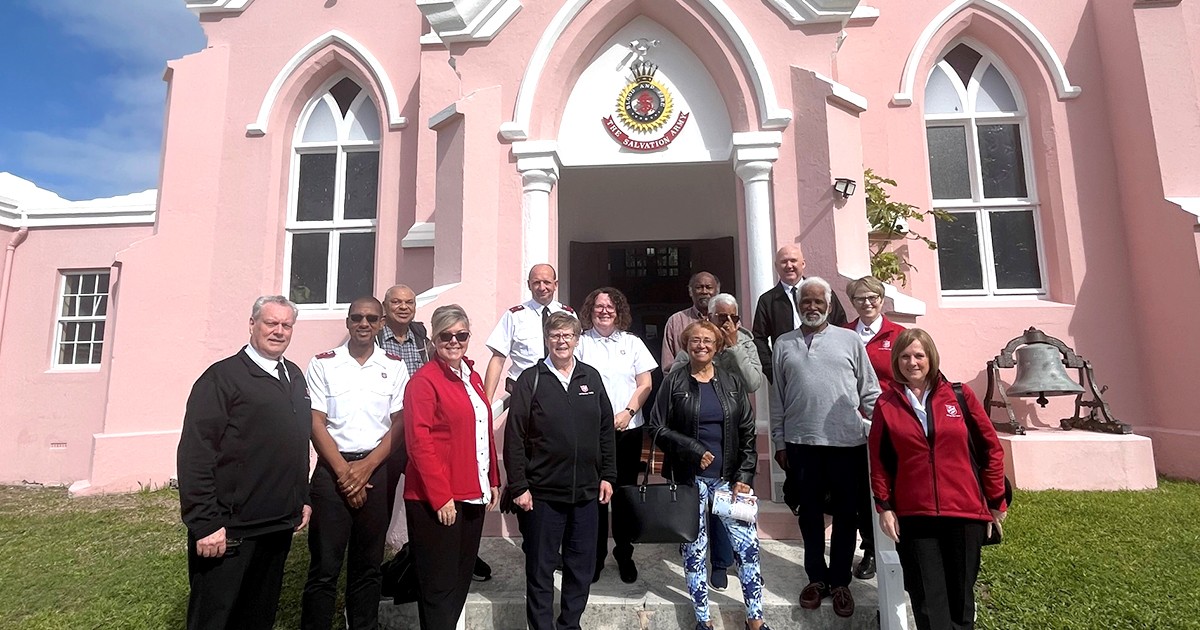


My husband and I met Commissioners Wayne and Debbie Bungay at their official opening of a clinic in Nyamukoho, Mudzi Zimbabwe. It was a wonderful, touching and humbling experience and before they left the country, they sent us such exquisite gifts. We were unable to thank them for the gifts and tremendous impact they had on us all during their time here, and I am kindly requesting if anyone could help me reach out to them. Thank you kindly. Mai Chief Nyamukoho Mudzi Zimbabwe